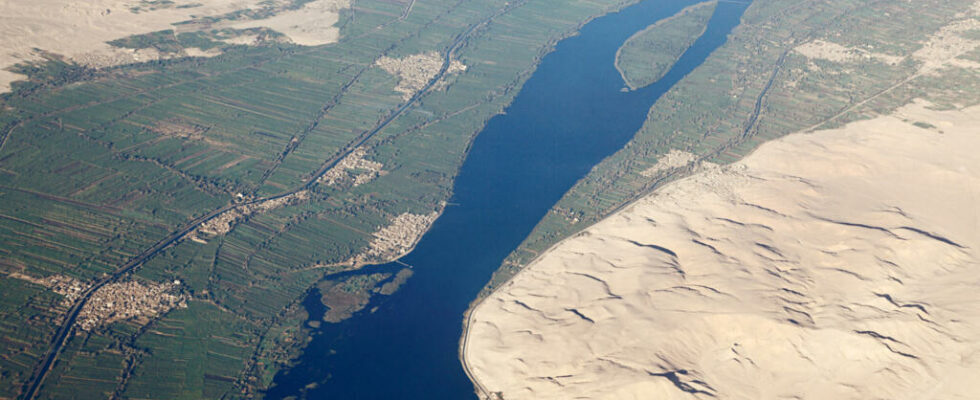It is an agreement that arouses both hope and controversy: the Nile Basin Cooperation Framework Agreement (CFA). Entering into force on Sunday, it aims to “ establish rights for riparian countries and promote equitable management » of the longest river in Africa. But it is also a source of tension. Egypt and Sudan rejected it, seeing it as an attempt to reduce their share of the Nile water.
2 mins
Lack of guarantees, absence of consultation… the grievances are numerous enough to reject the CFA agreement, believes Cairo, which refuses to “ give up a single meter of Nile water », in the words of his minister of irrigation.
A justified rejection according to Fadi Comair, honorary president of the UNESCO intergovernmental hydrological program: “ It is an agreement which concerns the countries upstream of the Nile, they have marginalized the downstream countries and these downstream countries, it is Egypt which will be directly impacted and which is already affected by the construction of the Renaissance Dam by Ethiopia, without adequate consultation with Egypt or Sudan. » Egypt, which depends on the Nile for 97% of its water needs, considers the Great Renaissance Dam to be a “ existential threat “. These fears are also highlighted in the CFA agreement.
Door still open to Egypt
Despite opposition from Cairo and Khartoum, Martinez Mangusho, former ambassador to the Ugandan Ministry of Foreign Affairs, and who followed the negotiations, welcomes an agreement ” determinant » : « This agreement is very important, because it recognizes that we all need water, and those who are now in the CFA confirm that we want to cooperate in the use of this shared resource. You see: when you are going to negotiate, you must do it in good faith. We don’t need to die for other riparian countries to survive, we can all survive with this God given resource. » A message addressed to Egypt, to which the former ambassador declared that the door to join the CFA remains open.
Ethiopia, Uganda, Rwanda, Burundi and Tanzania have ratified the agreement. Egypt and Sudan refused to sign, while the Democratic Republic of Congo abstained.
Also readNile: entry into force of an agreement ratified by seven East African countries but rejected by Egypt and Sudan
